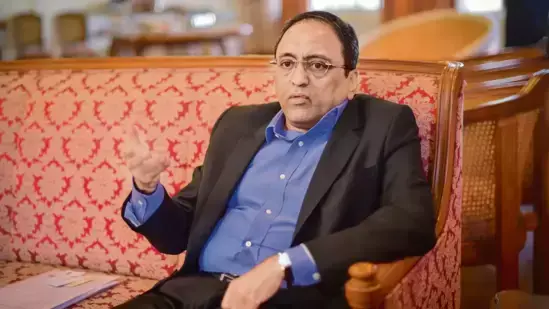
Title: If you ask an IT employee to come to office, he says ‘bye’: L&T Chairman
The debate about working from home has been ongoing for a while now, with some advocating for the flexibility and others opposing it, citing concerns about productivity and team collaboration. Recently, L&T Chairman SN Subrahmanyan sparked a heated discussion when he shared his views on the matter. In an interview, he made some interesting comments that have left many wondering about the future of workspaces.
Subrahmanyan’s remarks were met with a mix of surprise and agreement, as he pointed out that the working landscape has changed significantly over the years. He recalled his early days in the industry, when employees were expected to relocate to different parts of the country for work. “When I joined L&T in 1983, my boss said, if you’re from Chennai, you go to Delhi and work,” he said. “Today, if you ask an IT employee to come to the office and work, he says ‘bye’ (he resigns),” Subrahmanyan added.
It’s clear that the Chairman is alluding to the fact that the concept of work-life balance has become more prominent in today’s world. Employees are now more likely to prioritize their personal lives and well-being over long working hours and commuting to an office. This shift in attitude is not surprising, given the advancements in technology and communication tools that enable remote work.
Subrahmanyan’s comments also highlight the changing nature of the IT industry. Gone are the days when employees were tied to their desks for long hours, often sacrificing their personal lives for the sake of work. The rise of remote work and flexible work arrangements has brought about a significant change in the way people approach their jobs.
The Chairman’s remarks have also drawn attention to the issue of employee retention. In today’s competitive job market, companies are struggling to retain top talent, and the ability to offer flexible work arrangements is often a major drawcard. By allowing employees to work from home, companies can demonstrate their commitment to work-life balance and employee well-being.
However, not everyone agrees with Subrahmanyan’s views. Some argue that working from home can lead to a lack of structure and accountability, which can negatively impact productivity. Others point out that face-to-face interactions are essential for building strong relationships and fostering a sense of community in the workplace.
Despite these concerns, it’s clear that the trend towards remote work is here to stay. As technology continues to advance, it’s likely that we’ll see even more employees working from home or in shared spaces. Companies that adapt to this shift and offer flexible work arrangements are likely to reap the benefits of increased employee satisfaction, retention, and productivity.
Subrahmanyan’s comments also underscore the importance of understanding the needs and preferences of different generations in the workforce. As the workforce becomes increasingly diverse, companies must take a more nuanced approach to managing their employees. This includes recognizing the value of remote work and flexible arrangements, as well as finding ways to engage and motivate employees who prefer to work in traditional office settings.
In conclusion, L&T Chairman SN Subrahmanyan’s remarks about the rise of remote work and the decline of traditional office environments have sparked an important conversation about the future of work. As companies navigate this changing landscape, it’s essential to prioritize employee well-being, flexibility, and productivity. By doing so, we can create a more inclusive and effective work environment that benefits both employees and employers.






